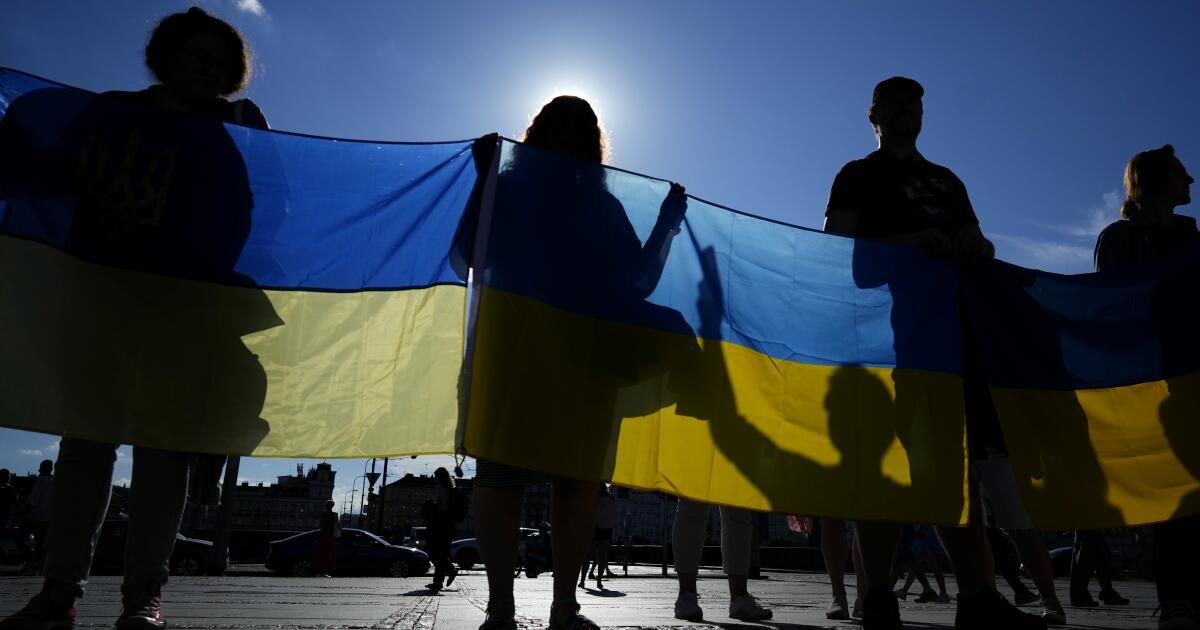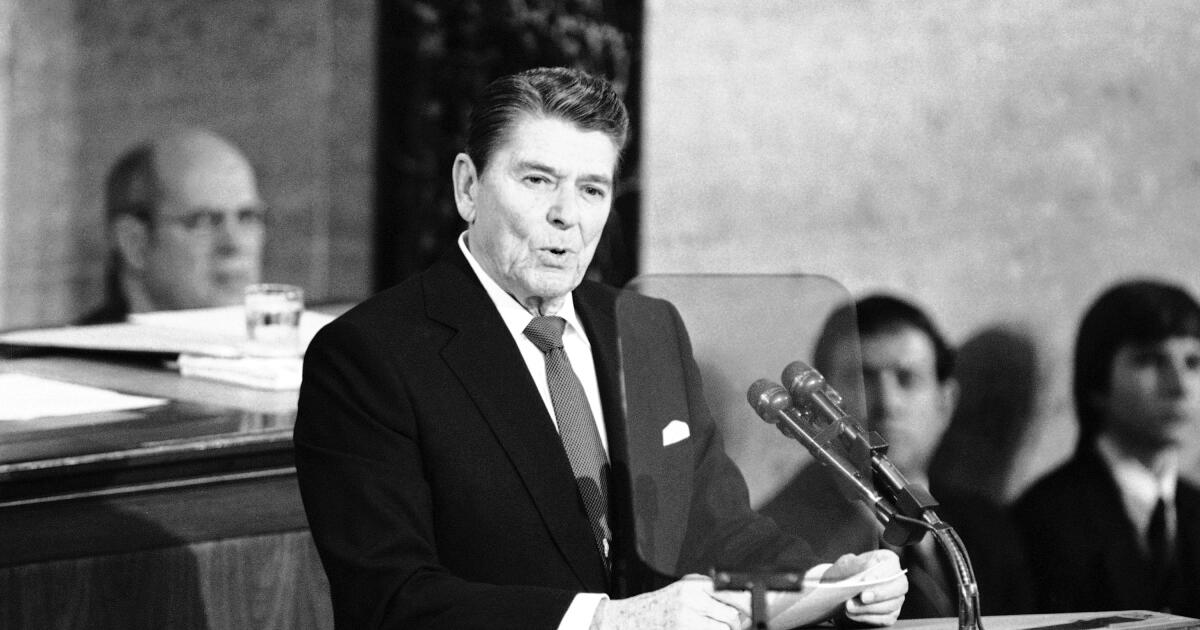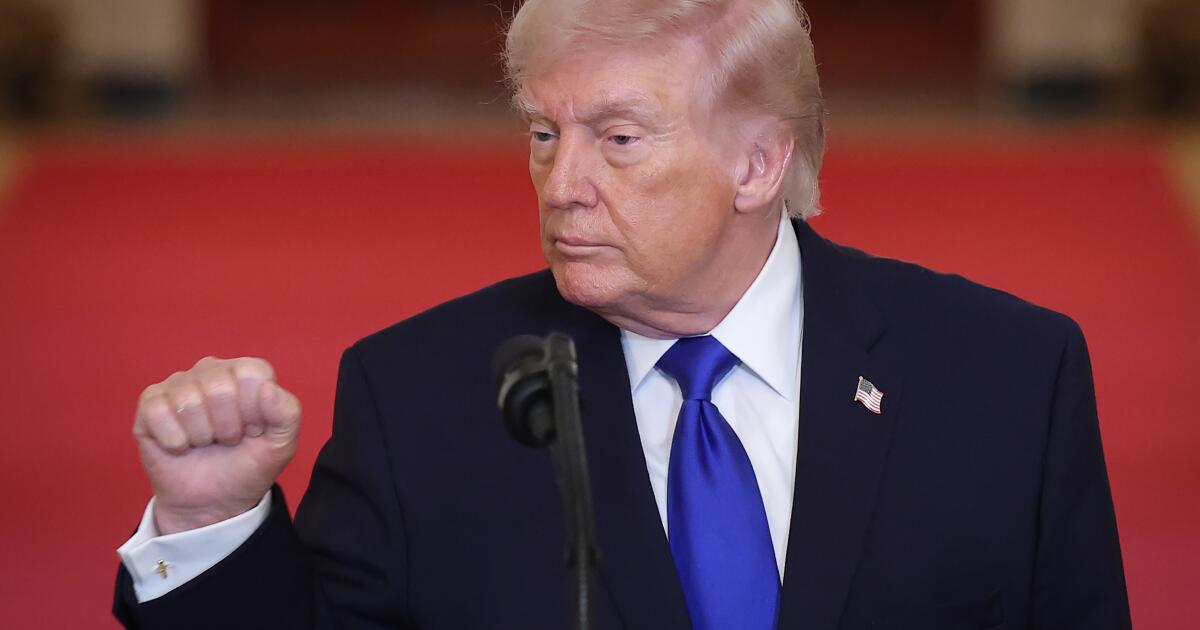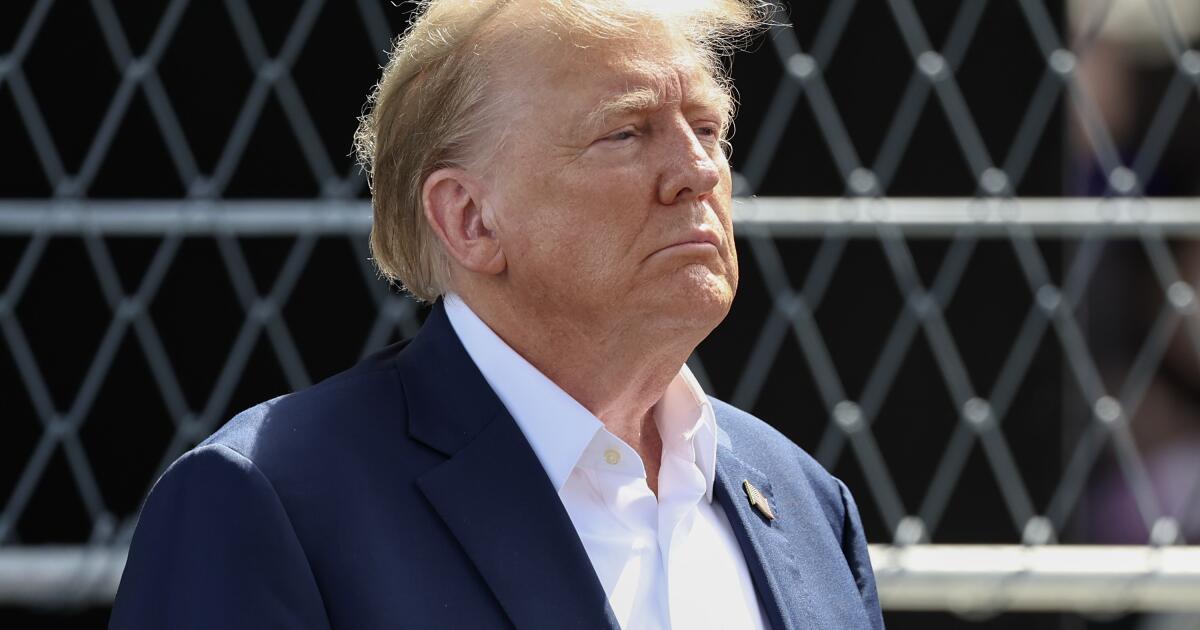We have been hearing this refrain a lot lately: “The US is only prolonging the war by helping Ukraine. We need diplomacy.”
To Ukrainian ears, however, “diplomacy” sounds like a euphemism for “Ukraine surrenders and ceases to exist.”
It is true that behind the refrain there is an honest question: Why can't Ukraine seek peace with Russia?
But the question could be rephrased as follows: why not cede huge swathes of sovereign territory to a brutal and corrupt regime? Why not stay away from NATO, allow Russian sanctions to be lifted, create a demilitarized zone (sacrificing more territory, of course) and aim for mutual trust?
The answers are obvious, given the reality on the ground and in Vladimir Putin's fevered mind, especially this week, after Russia bombed a children's hospital in kyiv in a massive daytime missile attack that killed at least 39 people across Ukraine.
For a decade, Russian President Putin has masterfully played on the West’s fear of a European war. The West initially caved to his threats and persistently kept Ukraine out of NATO (God forbid we start a war!), making the 2014 invasion and the full-scale war that is ongoing, starting in 2022, inevitable. Ukraine was excluded from the world’s most successful defense alliance and left vulnerable to major aggression, which is exactly what the Kremlin wanted.
Since then, “escalation management” exercises and significant restrictions on defense aid to Ukraine have failed to bring Putin to his senses, as he is waging the biggest war of European aggression since Adolf Hitler. On the contrary, these limitations have deprived Ukraine of the opportunity to cripple Russia and allowed it to launch a long war of attrition.
Half-hearted support measures have helped Putin recover from the initial failure of his military in northern Ukraine, as well as helping him adjust to sanctions, make war profitable for his elites, find allies and new markets, and prepare Russia for perpetual war.
Until very recently, Ukraine was strictly forbidden from using Western weapons to attack military targets inside Russian territory, a red line that effectively tied its hands. Did the Kremlin appreciate the gesture? Yes, the Russian military used its safe haven status to prepare new offensives and devastating bombing campaigns without opposition.
Beginning last fall, the chorus demanding a “diplomatic solution” grew louder on America’s ignorant right, and defense aid foundered for six critical months in Congress, creating a massive ammunition shortage for the Ukrainian military.
The lack of American aid did nothing to precipitate a cessation of hostilities or generate the “compromise” that Putin hypocritically talks about in his periodic ultimatums of surrender to Ukraine.
Instead, it hastened the tragic loss of the city of Avdiivka to the Russians in early 2024, as well as Moscow's overconfident spring offensive on Kharkiv. The Ukrainian front line did not fall, as many predicted, thanks to the courage and inventiveness of the Ukrainian army.
Russia responded to the delay in U.S. aid by tripling its missile attacks on Ukraine’s electrical and heating infrastructure, taking advantage of Ukraine’s air defense shortages. Now most of Ukraine’s energy production and distribution system is destroyed. Ukrainians spend most of their day without electricity, and God only knows what nightmare awaits us in the coming winter.
Decision-makers in Washington repeatedly follow the same dangerous script. Ukraine asks for weapons and the answer is that providing ammunition X or missile system Y would cross a red line and lead to escalation. Months of deliberations ensue and the situation in Ukraine worsens. Permission is granted late and weapons (artillery, armored vehicles, rocket systems, missiles, air defense, fighter jets) arrive late. Then the whole scenario repeats itself, as Ukraine tries to catch up and suffers.
When Ukrainian troops finally obtained the HIMARS rocket launchers in the summer of 2022, they were able to shockingly derail Russian logistics, undermine Russia’s immense artillery power, halt a Russian offensive, and help precipitate the liberation of Kherson later that year.
The US-made Patriot air defence system has been completely ruled out until late 2022, when it could finally be used against the Russian air force. The delayed arrival of the ATACMS missiles, which had been out of service for more than two years, ended up causing devastating damage to Russian airfields and air defence systems in occupied Crimea. All this without any “intensifying” consequences.
After taking stock of the red lines that have been crossed and the consequences, the Kremlin’s nuclear sabre-rattling is starting to sound a little tinny, isn’t it? As Ukrainian President Volodymyr Zelensky has noted, Putin may be crazy, but his instinct for self-preservation is alive and well. We need to be brave enough to call him out.
Appeasing Putin is not the path to peace; it is an open invitation to eliminate Ukraine as a nation, absorb its territory and resources, and install Russian aggressors directly on Europe's borders.
Putin will only stop when forced to do so, with an appropriate and forceful response that negates his ability to continue fighting. The Ukrainians resisted Russia’s attempt to launch a decapitating offensive on kyiv in February and March 2022 with that same kind of all-out effort.
Commentators, politicians and decision-makers in Congress and elsewhere in the West must stop ignoring the reality of what is needed to end the Russian war in Ukraine. Either that, or openly admit that they are working to help the Russian aggressor win.
Providing Ukraine with the support and weapons it needs is not about prolonging the war, but about stopping Putin speaking the only language he understands.
Illia Ponomarenko is a former defense and security journalist for the Kyiv Post and later co-founder of the Kyiv IndependentIn May, her book “I’ll Show You How It Was: The History of kyiv in Wartime” was published.











